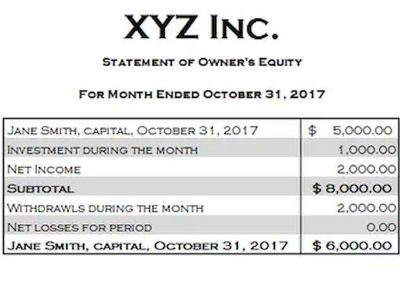A Detailed Review of US GAAP for International Accountants
GAAP (the generally accepted accounting principles) are a set of rules that public U.S. companies must follow when reporting financial information. The best way to think of GAAP is as a set of rules that companies follow when their accountants report their financial statements. These rules help investors analyze and find the information they need to make sound financial decisions. For investors, understanding financial reporting standards allows them to make informed decisions about where to invest their hard-earned money.
Governmental Accounting Standards Board
In this blog post, we are going to dive deep into the intriguing realm of GAAP and IFRS. GAAP is not the international accounting standard, which is a developing challenge as businesses become more globalized. is gaap used internationally The International Financial Reporting Standards (IFRS) is the most common set of principles outside the United States. IFRS is used in the European Union, Australia, Canada, Japan, India, and Singapore.
Best Small Business Accounting Software in 2024
Having expertise in multiple accounting standards enables accounting professionals to work for multinational corporations and compare financial reports from companies across different countries. The adoption of IFRS in the US would have a significant impact on financial reporting. One key advantage is that it would create greater consistency and comparability across countries. This means that companies operating https://www.bookstime.com/ internationally would be able to present their financial statements in a more uniform manner, making it easier for investors and analysts to evaluate performance. GAAP has been widely used in the United States for decades, providing consistency and reliability in financial reporting. One advantage is that it ensures uniformity across industries, making it easier to compare companies within the same sector.

GAAP vs. IFRS: 6 Differences Between Accounting Standards
As an international accountant seeking to apply US GAAP, having access to the standards, interpretations, and implementation guidance is critical. There are several useful resources available to study US GAAP requirements in-depth. While US GAAP compliance is mandatory for public companies, the framework is also useful for private companies looking to standardize processes. Understanding GAAP helps accountants properly implement required standards during financial reporting. Navigating these differences provides helpful framing for international accountants supporting US GAAP environments.
GAAP vs. IFRS: Understanding the Differences in Global Accounting Standards
Publicly traded domestic companies are required to follow GAAP guidelines, but private companies can choose which financial standard to follow. Some companies in the U.S.—particularly those that are traded internationally or see a lot of international business—may use dual reporting (i.e., both methods) when preparing financial statements. It is also possible, though time-consuming, to convert GAAP documents and processes to meet IFRS standards. Whether or not the two systems will ever truly integrate or converge remains to be seen, though efforts were made by the U.S. Securities and Exchange Commission from 2010 to 2012 to come up with an official plan for convergence. As the business world becomes more globalized, understanding both GAAP and IFRS is crucial for international accountants.
Additionally, GAAP provides detailed guidance on various accounting principles, which helps accountants maintain accurate records. Having accounting standards in place ensures uniformity and fairness in financial reporting. Standards prevent companies from using different kinds of accounting methods and practices that might inflate their income or net worth. However, deviation from GAAP is allowed—as long as companies can justify and explicitly mention the deviation during financial reporting. This means these companies’ financial statements must follow all the GAAP principles and meet GAAP standards. Any external party looking at a company’s financial records will be able to see that the company is GAAP compliant, making it both easier to attract investors and to successfully pass external audits.
- If a corporation’s stock is publicly traded, its financial statements must follow rules established by the U.S.
- Companies registered in the U.S. to reconcile their financial reports with GAAP if their accounts already complied with IFRS.
- Mastering sector-specific US GAAP principles is crucial for international accountants looking to work with American companies.
- Consistency in financial reporting ensures that companies present their financial information in a standardized manner that is easily comparable across industries and countries.
- Thorough investment research requires an assessment of both GAAP and adjusted results (non-GAAP), but investors should carefully consider the validity of non-GAAP exclusions on a case-by-case basis.
Consistency

Moreover, the presentation and disclosure requirements also differ between IFRS and GAAP. IFRS puts greater emphasis on presenting information that is useful to users of financial statements, focusing on the substance of transactions rather than their legal form. GAAP, on the other hand, is more prescriptive in its presentation and disclosure requirements, providing detailed guidance on formats and specific line items. These variations can impact the level of detail and consistency in financial reporting across jurisdictions.
- Adopting IFRS can facilitate easier communication with stakeholders in different countries and enhance comparability with international peers.
- As an international accountant, having a solid grasp of these 12 tenets will lend essential context when providing services to American companies under US GAAP standards.
- Another area of discrepancy between IFRS and GAAP is the treatment of research and development (R&D) costs.
- Generally accepted accounting principles (GAAP) is the accounting standard set by the Financial Accounting Standards Board (FASB) for the Securities and Exchange Commission (SEC) in the United States.
- Since much of the world uses the IFRS standard, a convergence to IFRS could have advantages for international corporations and investors alike.
- Your accounting standard, therefore, determines where on your financial documents you must list intangible assets and affects your balance sheet’s final balance.
- The adoption of IFRS in the US would have a significant impact on financial reporting.

